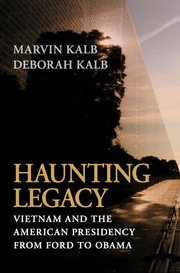Q&A with novelist Tatjana Soli
 Wednesday, June 13, 2012 at 5:50AM
Wednesday, June 13, 2012 at 5:50AM Tatjana Soli is the author of the award-winning Vietnam War novel The Lotus Eaters, published in 2010.
Q: Your book The Lotus Eaters is set in Vietnam during the war. What inspired you to write about that war, and what kind of historical research did you do for the book?
A: The initial inspiration really came when as a young child I lived on Fort Ord military base in the late sixties. As an adult, it became kind of a personal quest to make sense of that time for myself. Of course it is one of those subjects where the deeper you go, the more there is, until it is an obsession. Since the book came out, many people have contacted me that are still obsessed by the war, whether through first-hand experiences, or those only involved peripherally, through other family members, like myself. As far as research, I needed so much factual information that would never find a place in the final book, but that I needed to ground the story in. Besides documentaries, I read newspapers and magazines, which were invaluable for the simple fact that they were written in the moment. I read many of the later memoirs of the journalists who covered the conflict and had the benefit of hindsight. Military pamphlets, soldier testimony, histories of colonialism, Vietnamese food, Vietnamese and American music. It was fairly exhaustive. I used whatever gave me a feeling for the time and place so it was a bit like an actor getting into a part.
Q: The main character, Helen, works as a photojournalist. Why did the idea of a female war photographer appeal to you, and what do you think of the role women journalists played in the Vietnam War and subsequent conflicts?
A: I was interested in using the viewpoint of a female journalist for a novelist's reasons: she would be a perfect outsider character. Beyond that, as a woman writer, I wanted very much to have a female inhabit the central moral conflict in the traditionally male territory of a war novel. Researching the lives of journalists I was in awe how brave many of these people were then and are today. In the particular area of war photojournalism, women had just started to have a presence in Vietnam. I believe I read somewhere that today the figure is twenty-five percent of journalists are women. It is a very difficult life for a man or a woman.
Q: Your writing is very cinematic; a reader feels transported to the locations you describe. Had you been to Vietnam before writing the book? And are there plans for a movie version of The Lotus Eaters?
A: I had been to other parts of Southeast Asia, but not Vietnam. I didn't have a contract for the book so I put off going until a later point. After years of living with the story, I decided almost superstitiously that visiting might destroy the world I had created — the Vietnam of the sixties and seventies at war. I've gone subsequently, and I feel that the book would not have materially changed. A few small details at most. I tell my students that place is always filtered through character and story. If you've created a vivid reality in a book, it is not a place that can be visited. Which doesn't keep my mom from asking if I visited the yellow building in Cholon! The book has been optioned for a movie, and I have my fingers crossed.
Q: Your second novel, The Forgetting Tree, to be published this September, takes place in a very different locale. How do you choose your settings, and is it difficult to switch from one to another?
A: I worked on and off The Lotus Eaters for 10 years, so I was immersed in that setting though pictures, movies, documentaries for a long time, and it's emotionally draining material. That was part of the reason I finally went to Vietnam — to experience it in a healing way. I very consciously wanted to stay away from a loaded setting and also anything historical for my next book. My second book takes place in contemporary Southern California on a citrus farm. It is a setting that I've lived near for years, that I love deeply, and that creates different kinds of resonances than a place mostly imagined. Again, I'd say that the place in my book is not a place you can visit.
Q: What other novels about the Vietnam War do you recommend, and why?
A: I sound like a broken record, but I will forever be an evangelist for Tim O'Brien's novels. Especially with younger audiences who are only exposed to whatever is currently being published. I don't believe there will ever be a better account of the soldier's experience, or the toll of that experience, than in his work. Of course, there is The Things They Carried, but equally important is Going After Cacciato, and then further into the aftereffects of war in the book In the Lake of the Woods. Next, Dog Soldiers, by Robert Stone, because he is a master novelist, and he makes you understand the time from the inside out.
Interview with Deborah Kalb, co-author of Haunting Legacy.



Reader Comments